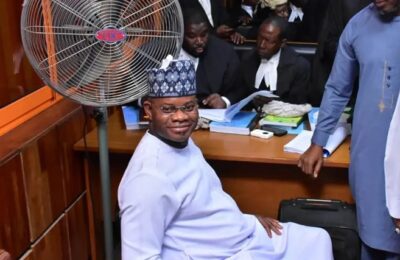Politics is a game of blame—a game where a successor often faults their predecessor to justify personal shortcomings, forgetting that they were elected to bring change where their predecessor failed.
In 2015, when the APC took over leadership from the PDP, we defended the APC by highlighting the PDP’s failures, arguing that four years was not enough to clean up the mess created over sixteen years. We assumed this rhetoric would end after the APC’s second term, but it continued throughout the eight years.
At the time, I thought this blame game existed only because the predecessor was from an opposition party. I didn’t realize that this mindset goes beyond party lines—it even applies to mentors and allies.
This became clearer when President Tinubu took over from Buhari. Both belong to the same party. Buhari and his cabinet vigorously campaigned for Tinubu, using their achievements in office to build support. After Tinubu’s victory, I assumed that, since many members of Buhari’s cabinet were retained, the new administration would not resort to blaming the past government. It would be illogical, especially when the same individuals were part of that past administration. Yet, disappointingly, we are hearing the same narrative.
Whenever citizens raise concerns, the usual response is: “The previous administration bastardized the economy.” But here lies the contradiction—how can you claim to want a better country while surrounding yourself with people who supposedly ruined it? If your claims about the previous government are true, why are those same individuals still part of your team?
This blame culture is not restricted to the national level; it’s playing out in some states too. Take Kaduna State, for example. Mallam Nasir El-Rufai campaigned vigorously for Governor Uba Sani, using his own achievements as a major tool. Yet, after the election, we are now being told that El-Rufai mismanaged Kaduna’s resources. This is someone whose legacy helped secure your victory. If these allegations are true, how did you win the people’s support? Are you implying that the election was rigged or that the people were deceived?
Ironically, they now applaud anyone who makes disparaging remarks about the very system that brought them to power.
In politics, yesterday’s helper can be labeled a devil tomorrow. It’s a game where, regardless of a predecessor’s contribution to a successor’s rise, the successor may still paint them as a failure to excuse their own flaws. The successor is often reminded that they now occupy the same seat once held by their predecessor and, therefore, must act differently—and should not take advice from them.
If the successor lacks independence of thought, he will fall for that advice and begin to draw comparisons with his supposed mentor—forgetting that his political success is closely tied to that very person.
But the truth remains: you can perform better without turning against the one whom God used to place you where you are today.
– Engr Ira Habib writes from Kogi state.




